Description
Product Features:
| Product Name | : Lenvaxen |
| Generic Name | : Lenvatinib |
| Manufacturer | : Everest Pharma Ltd |
| Indication | : Thyroid Cancer |
| Formulation | : Capsule |
| Strength | : 4 mg |
| Quantity | : 30 Capsules |
| Storage | : Below 25°C |
| Registrations | : Export Only |
Lenvaxen 4 mg (Lenvatinib) is a targeted therapy that targets and binds to the tyrosine kinase receptors and inhibits vascular epidermal growth factor receptor (VEGFR), vascular endothelial growth factor (VEGF), and inhibits other kinase receptors that have been implicated in pathogenic angiogenesis, tumor growth, and cancer progression in addition to their normal cellular functions, including fibroblast growth factor (FGF) receptors and platelet derived growth factor receptor alpha (PDGFRa), KIT and RET on the surface of the cell. By binding to these receptors Lenvatinib blocks important pathways that promote cell division.
Indication
Lenvaxen 4 Mg (lenvatinib) is a medication primarily used to treat various types of cancer. It is a kinase inhibitor, meaning it blocks the action of certain enzymes that promote cancer cell growth.
Differentiated Thyroid Cancer (DTC): Lenvaxen 4 mg is indicated for adults with locally recurrent or metastatic, progressive, radioactive iodine-refractory differentiated thyroid cancer. It’s used when the cancer has returned, spread and no longer responds to radioactive iodine treatment.
Renal Cell Carcinoma (RCC): In combination with everolimus, indicated for the treatment of advanced renal cell carcinoma (kidney cancer) in patients who have received one prior anti-angiogenic therapy.
Hepatocellular carcinoma (HCC): Lenvaxen 4 mg is also approved for use as a first-line treatment for unresectable.
Endometrial Carcinoma: Lenvaxen 4 mg is used in combination with pembrolizumab to treat advanced endometrial carcinoma (cancer of the lining of the uterus) in patients whose tumors are not microsatellite instability-high (MSI-H) or mismatch repair deficient (dMMR) and whose disease has progressed after preceding systemic therapy.
Dosage
Lenvaxen 4 mg can be given at different doses. It is important to carefully follow your doctor’s orders.
Side Effects
Side effects of Lenvaxen 4 mg include high blood pressure, heart issues, protein in urine, diarrhea and gastrointestinal issues. You must talk to your doctor about any side effects.
Pregnancy and breast-feeding
Lenvaxen 4 mg can harm an unborn baby and should not be taken during pregnancy or breast-feeding.
Disclaimer: This information is provided solely for educational reasons and should not be considered medical advice. Always consult with your doctor or healthcare professional before taking any drug.

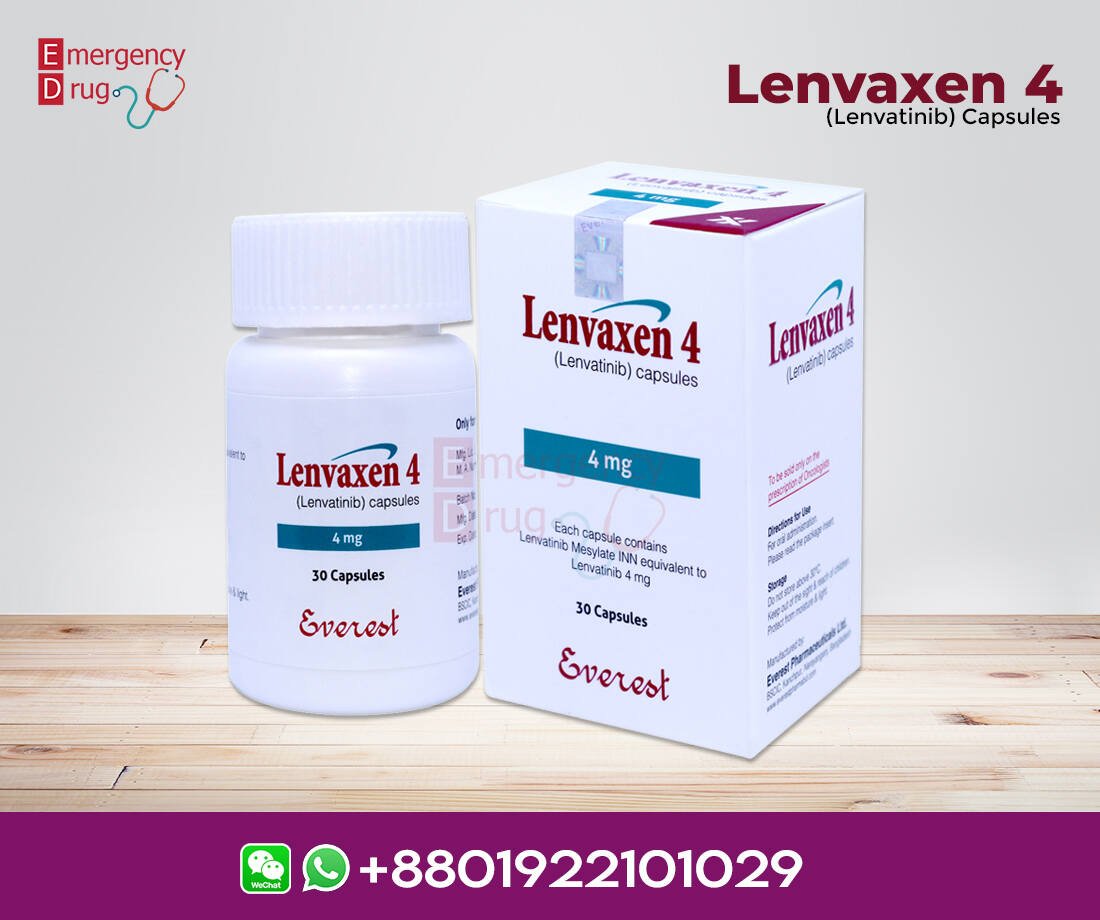


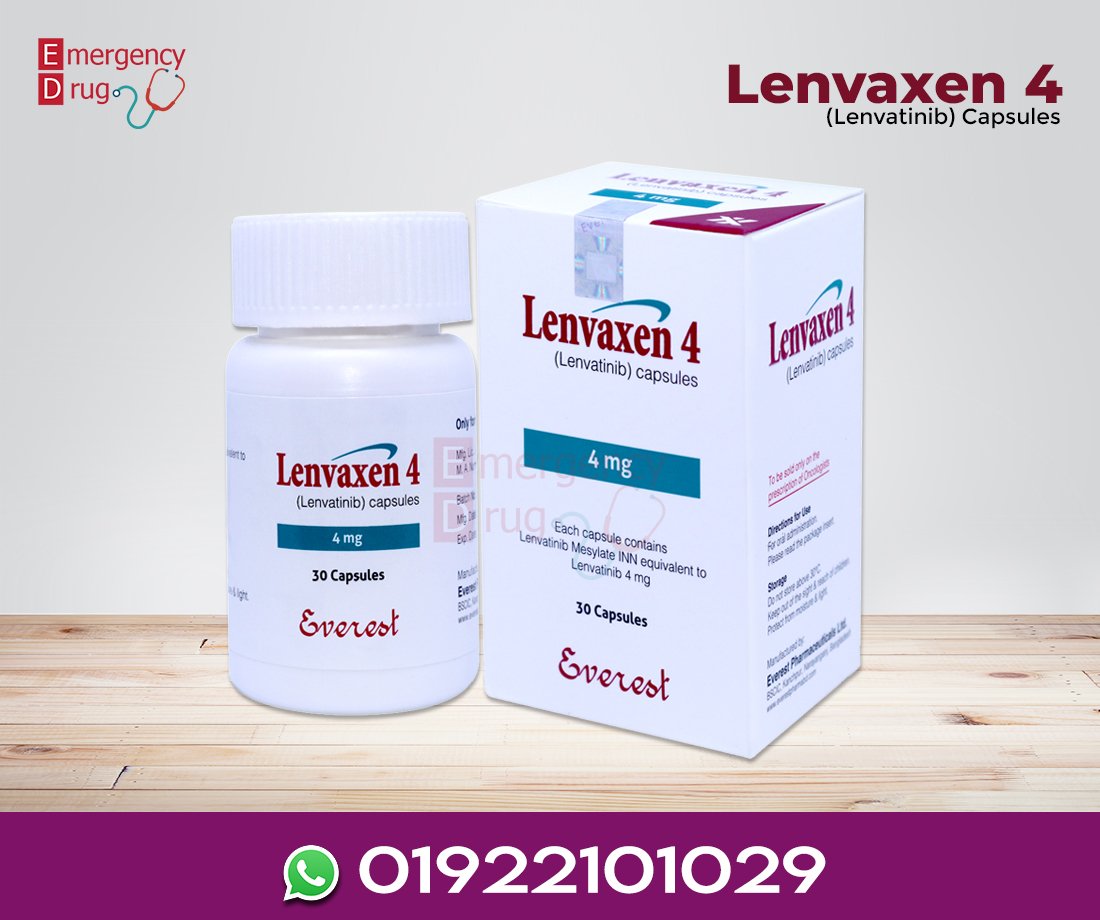
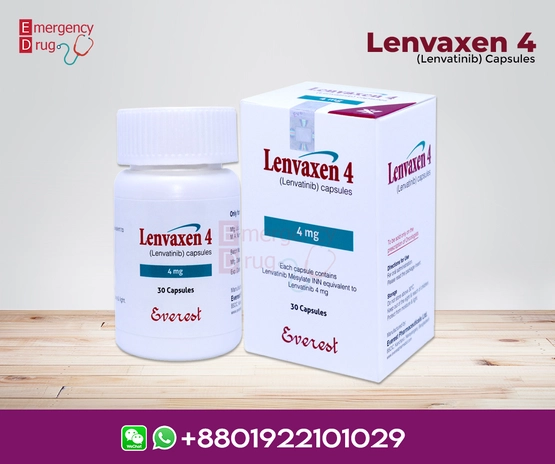
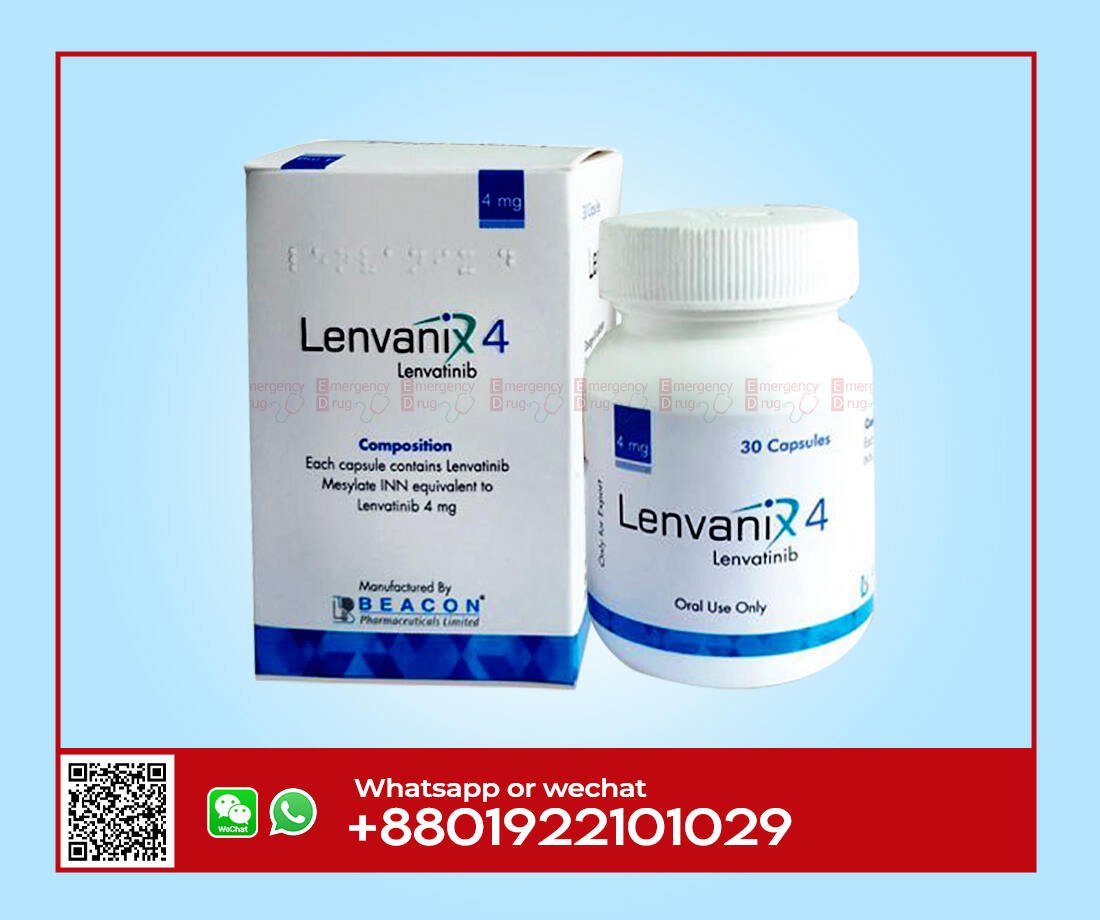
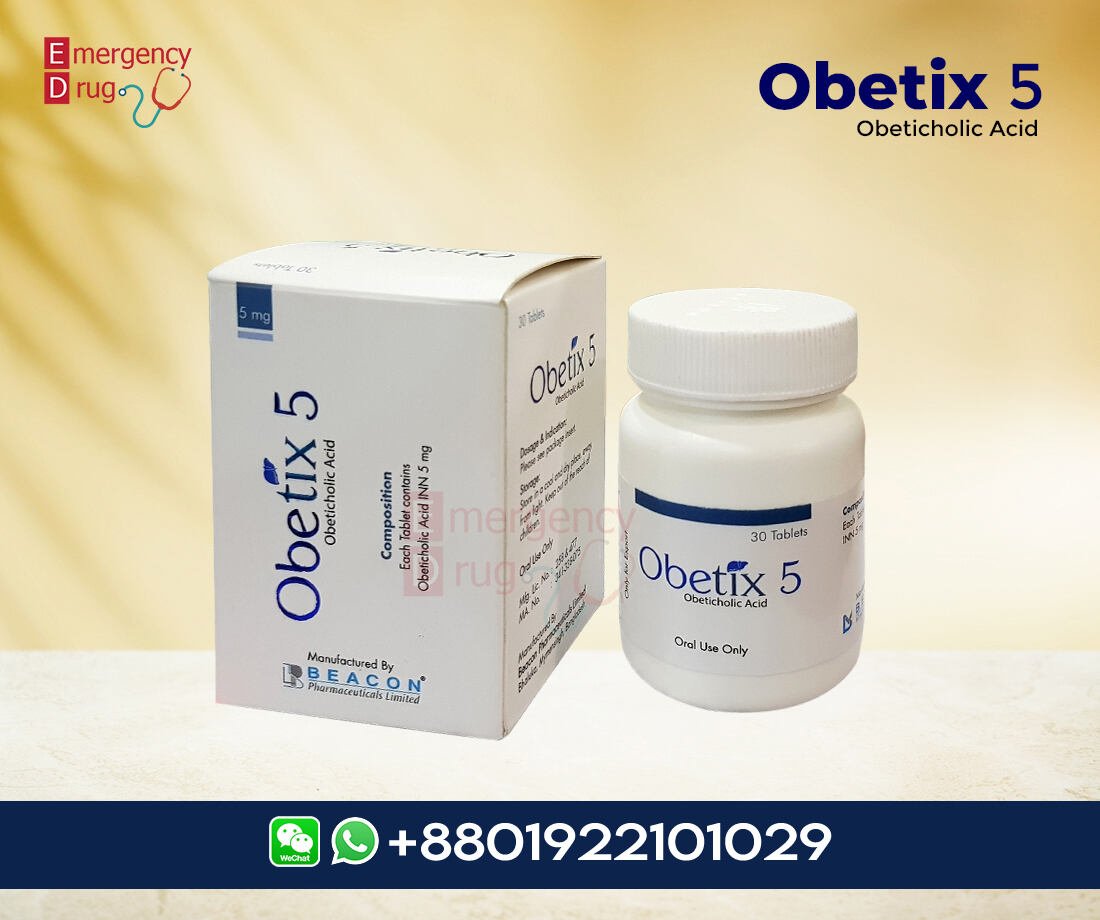
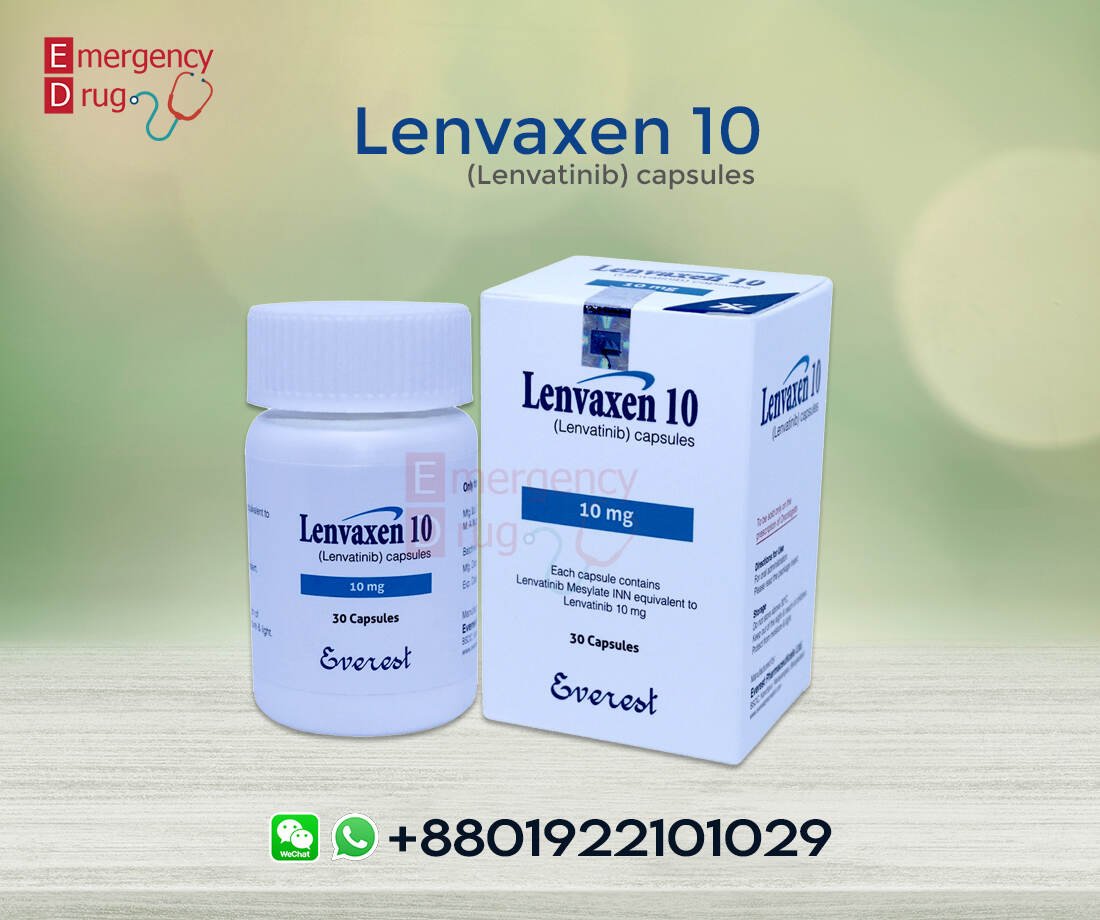
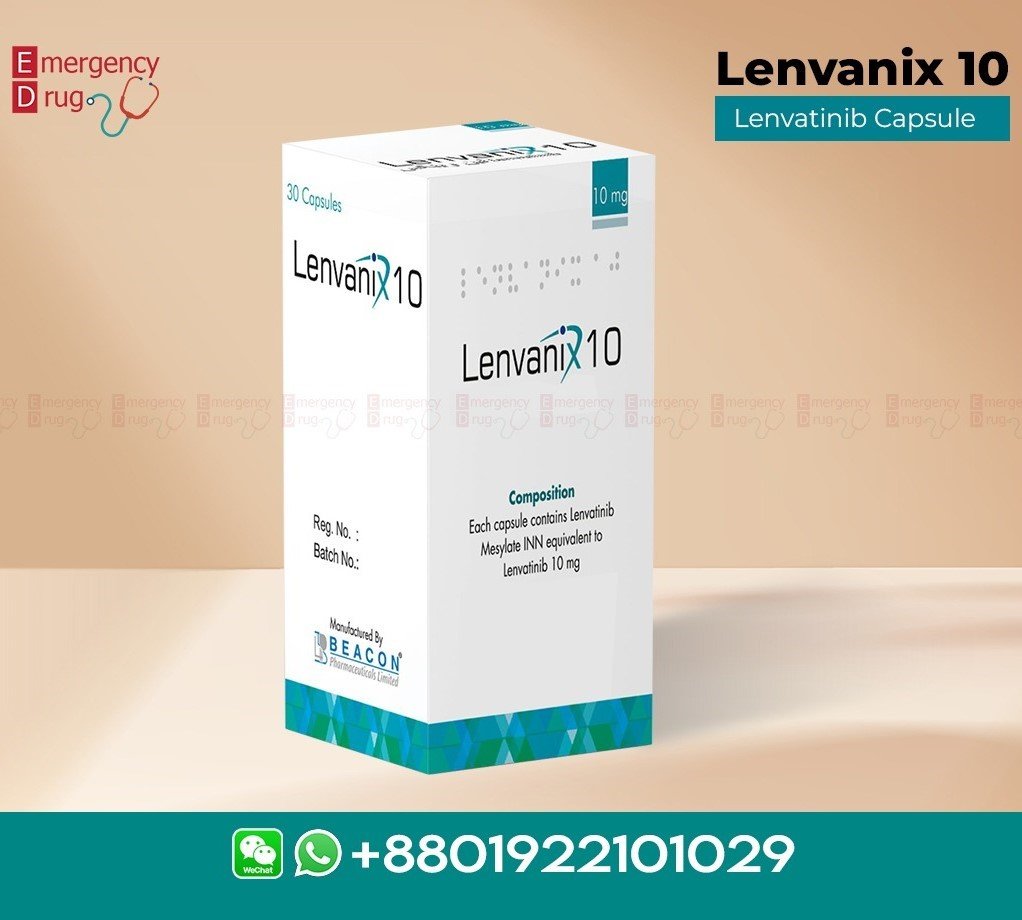
Reviews
There are no reviews yet.